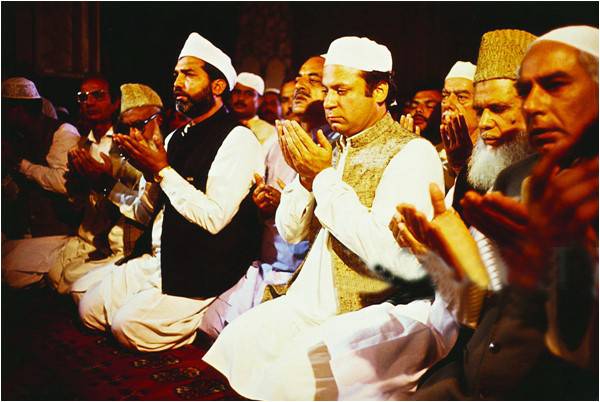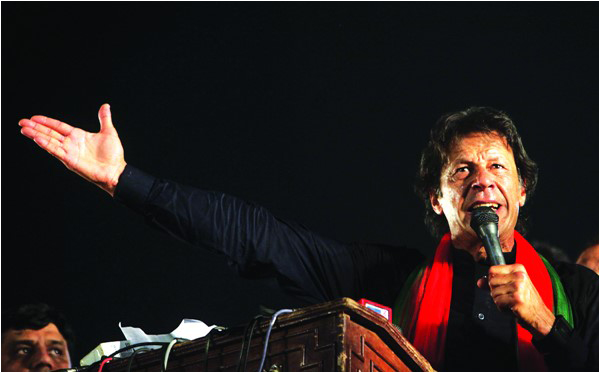
In his masterpiece Chronicle of a Death Foretold, Marquez narrates the story of a murder, which is about to take place in a small provincial town in Latin America. Nearly the whole town finds out about the impending murder before it occurs, but no one ends up telling the victim, either because they cannot find him, or they don’t believe the murderers or, in some cases, because they encourage the murderers to go through with it. Nobody is even certain about the motives, which prompted the murderers to commit the heinous act.
In the current crises in Pakistan, it is not just the spectators; even the victim knows about the inevitable catastrophe and understands the intricacies of an unfolding well-crafted script. This is a familiar story playing out for the umpteenth time. Like a long-running play on Broadway, where the cast changes every few years. Actors may have changed, but the characters remain the same. We are back to the musical chairs of the 1990s, when the military and the judiciary made a mockery of democratic institutions by dismissing civilian governments four times. However, what is different this time is that instead of meekly accepting the verdict, the main character is vigorously fighting against it.
In 1999, the military staged a coup and got it validated by the judiciary by dismissing a few of the dissenting judges. This alliance continues today to scuttle the democratic order without the formality of a martial law. The deafening crescendo of a hysterical media and the motley crowd of opposition parties are adding to the havoc under the expert command and control of the permanent establishment.
The multi-pronged attack launched against the elected civilian government four years ago is reaching its crowning point. The script for regime change started off with dharnas and various political parties in the opposition were brought together through coercion, blackmail and political engineering. The media was made subservient and dissenting voices among anchors, channels and newspapers learnt to obey the real rulers the hard way. Independent voices of dissent on social media went missing and were thus silenced. The extreme Right, in the form of organisations like Pakistan Awami Tehreek (PAT) and Tehreek-e-Labbaik, was unleashed against the ruling party.
It ended in tightening the noose around the neck of the elected government through a well-knitted and coordinated grand alliance between the judiciary, the agencies and National Accountability Bureau. A parallel government came into being, which selectively targeted the ruling party. The civilians watched in horror as they lost control of every single department under their rule. In between, senate elections were rigged and elected representatives were harassed and blackmailed to change loyalties in favour of pro-establishment parties. A virtual martial law was declared and the limited powers available to the civilian government were forcibly taken away from it, rendering it rudderless and clueless.

Despite these draconian measures, the establishment is afraid of the electorate, which refuses to buy their narrative. Why does such a huge conflict between civilians and khakis arise time and again and what are the interests involved? What has impelled even the Punjab to join the smaller nationalities this time to stand up to the establishment for the cause of civilian hegemony?
It is a conflict between two world views - one which wants to usher this country into an era of peace with its neighbours and promote economic cooperation and connectivity with huge benefits to the local and regional economy; and the other which wants to turn Pakistan into a national security state, maintain permanent conflicts with the neighbours, build a huge war machine and a giant commercial empire for the benefit of the establishment.
It is also true that the civilians failed to build defence lines of the democratic order. They could have pulled their act together and run a clean and effective government by giving importance to the parliament and doing away with the distortions of the constitution made by the military rulers of yore. The aristocratic style of governance, reliance on a small kitchen cabinet lacking professionalism, utter disregard of legislation and the parliament led to this state and other actors found it easier to trespass on the domain of democratic institutions and seize power. However, it cannot be forgotten also that the elected government has been kept permanently under siege by the deep state.
It does not matter which civilian party comes to power; they all turn against their benefactors in due time. However, there is a silver lining here. One thing is certain that despite their wishes, it has become increasingly difficult for the deep state to rule the country directly and it has to rely on proxies. The deep state desires a hung parliament and short-term coalition governments, as it knows that even a weak government will start developing its teeth once in power. The possibility of forcing a technocratic independent prime minister, subservient to the deep state, cannot be ruled out. The willingness of the popular political parties in the opposition to be brought down to the level of puppets of the establishment is astonishing and does not bode well for the future of democracy in Pakistan. The parties expecting to get to rule Pakistan will be facing a big surprise - they will have no power.
As far as the people of Pakistan are concerned, their plight does not seem to be any different from that of Sisyphus, who was condemned by the Greek gods to an eternity of ceaselessly rolling a rock to the top of a mountain, then helplessly watching it roll back down again.
In the current crises in Pakistan, it is not just the spectators; even the victim knows about the inevitable catastrophe and understands the intricacies of an unfolding well-crafted script. This is a familiar story playing out for the umpteenth time. Like a long-running play on Broadway, where the cast changes every few years. Actors may have changed, but the characters remain the same. We are back to the musical chairs of the 1990s, when the military and the judiciary made a mockery of democratic institutions by dismissing civilian governments four times. However, what is different this time is that instead of meekly accepting the verdict, the main character is vigorously fighting against it.
It does not matter which civilian party comes to power. They all turn against their benefactors in due time
In 1999, the military staged a coup and got it validated by the judiciary by dismissing a few of the dissenting judges. This alliance continues today to scuttle the democratic order without the formality of a martial law. The deafening crescendo of a hysterical media and the motley crowd of opposition parties are adding to the havoc under the expert command and control of the permanent establishment.
The multi-pronged attack launched against the elected civilian government four years ago is reaching its crowning point. The script for regime change started off with dharnas and various political parties in the opposition were brought together through coercion, blackmail and political engineering. The media was made subservient and dissenting voices among anchors, channels and newspapers learnt to obey the real rulers the hard way. Independent voices of dissent on social media went missing and were thus silenced. The extreme Right, in the form of organisations like Pakistan Awami Tehreek (PAT) and Tehreek-e-Labbaik, was unleashed against the ruling party.
It ended in tightening the noose around the neck of the elected government through a well-knitted and coordinated grand alliance between the judiciary, the agencies and National Accountability Bureau. A parallel government came into being, which selectively targeted the ruling party. The civilians watched in horror as they lost control of every single department under their rule. In between, senate elections were rigged and elected representatives were harassed and blackmailed to change loyalties in favour of pro-establishment parties. A virtual martial law was declared and the limited powers available to the civilian government were forcibly taken away from it, rendering it rudderless and clueless.

Despite these draconian measures, the establishment is afraid of the electorate, which refuses to buy their narrative. Why does such a huge conflict between civilians and khakis arise time and again and what are the interests involved? What has impelled even the Punjab to join the smaller nationalities this time to stand up to the establishment for the cause of civilian hegemony?
It is a conflict between two world views - one which wants to usher this country into an era of peace with its neighbours and promote economic cooperation and connectivity with huge benefits to the local and regional economy; and the other which wants to turn Pakistan into a national security state, maintain permanent conflicts with the neighbours, build a huge war machine and a giant commercial empire for the benefit of the establishment.
It is also true that the civilians failed to build defence lines of the democratic order. They could have pulled their act together and run a clean and effective government by giving importance to the parliament and doing away with the distortions of the constitution made by the military rulers of yore. The aristocratic style of governance, reliance on a small kitchen cabinet lacking professionalism, utter disregard of legislation and the parliament led to this state and other actors found it easier to trespass on the domain of democratic institutions and seize power. However, it cannot be forgotten also that the elected government has been kept permanently under siege by the deep state.
It does not matter which civilian party comes to power; they all turn against their benefactors in due time. However, there is a silver lining here. One thing is certain that despite their wishes, it has become increasingly difficult for the deep state to rule the country directly and it has to rely on proxies. The deep state desires a hung parliament and short-term coalition governments, as it knows that even a weak government will start developing its teeth once in power. The possibility of forcing a technocratic independent prime minister, subservient to the deep state, cannot be ruled out. The willingness of the popular political parties in the opposition to be brought down to the level of puppets of the establishment is astonishing and does not bode well for the future of democracy in Pakistan. The parties expecting to get to rule Pakistan will be facing a big surprise - they will have no power.
As far as the people of Pakistan are concerned, their plight does not seem to be any different from that of Sisyphus, who was condemned by the Greek gods to an eternity of ceaselessly rolling a rock to the top of a mountain, then helplessly watching it roll back down again.

